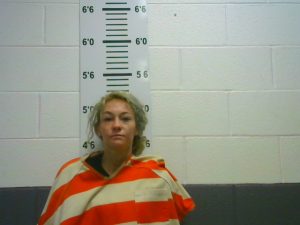News
County Unable to Enact Impact Fees on New Construction (View video here)
March 1, 2022
By: Dwayne Page
Builders and homeowners will not have to worry about dealing with impact fees on new residential and commercial construction in DeKalb County any time soon.
(The county commission discusses the impact fees issue 8 minutes and 40 seconds into the video below)
Although the issue had originally been included as an agenda item for Monday night’s regular monthly meeting of the county commission, it was removed prior to the session after it was discovered that DeKalb County does not have the statutory authority to implement impact fees as a means of raising revenue to fund other projects such as school construction according to the County Technical Assistance Service (CTAS) which gives advice to county governments.
Seventh district county commissioner Bruce Malone, who raised the issue during Thursday night’s committee of the whole meeting of the county commission, said the county is missing out on new revenue opportunities with the housing boom the last few years and he would like to see impact fees adopted and the money go for school construction projects. Under Malone’s plan, an impact fee of $1.00 per square foot would have been assessed for new residential and $2.00 per square foot for new commercial construction plus an additional $500 per plan. The fees would not have applied to rehabilitation or remodeling projects of existing structures, nor would it have applied to the cities within the county which have their own ordinances and codes regarding construction. Because it applied to new construction, Malone said the impact fees would not have affected county taxpayers.
According to CTAS, “Impact fees are a means of regulating new development. The intent of the fee is to place the financial burden of new growth on areas in which the growth has occurred. The level of the fee must be related to the needs of new development, and revenues generated by the fee should be earmarked for investment in the growth areas. There is no specific statutory authority under general law for counties to impose impact fees. Prior to 2006, impact fees could be imposed by private act. After June 20, 2006, no county is authorized to enact an impact fee on development or a local real estate transfer tax by private or public act. T.C.A. § 67-4-2913”.
In the future the county might have the option of enacting a “County School Adequate Facilities Tax” on residential development to raise revenue which is not subject to the same standards as impact fees, but DeKalb County currently does not meet the criteria for imposing such a tax under the state’s “County Powers Relief Act”.
“Adequate facilities taxes are privilege taxes levied on the privilege of construction or development of property. The primary difference between an impact fee and an adequate facilities tax is one of intent: It is a tax if the primary purpose is to raise revenue, but it is a fee if the purpose is regulation of some activity under the government’s police power”.
According to CTAS, “The County Powers Relief Act” authorizes counties qualifying as “growth counties” to levy a county school facilities tax on residential development but the county must meet the criteria to be a growth county by one of two ways: (1) the county experienced a 20 percent or greater increase in population between the last two federal decennial censuses (or the county experiences that level of growth between any subsequent federal censuses); or (2) the county experienced a 9 percent or greater increase in population over the period from 2000 to 2004 (or over any subsequent four year period) and before the tax may be levied, the county is required to have adopted a capital improvement program. The tax can then be levied by a resolution adopted by a 2/3 vote of the entire membership of the county legislative body at two consecutive, regularly scheduled meetings. The tax may be levied initially at a rate not to exceed $1.00 per square foot. Square footage is determined based on the total heated or air-conditioned residential living space. Once adopted, the rate of the tax cannot be increased for four years. Once the four-year period has run, the county legislative body may increase the rate, but by no more than 10 percent. After any increase, the rate is again frozen for a four-year period. Public buildings, places of worship, barns and agricultural buildings, replacement buildings for structures damaged by disaster, buildings owned by 501(c)(3) nonprofit corporations, and buildings constructed in an area designated by the federal government as a blighted, distressed, or urban renewal zone are exempt from the tax. All revenue from this tax is turned over to the county trustee for deposit. The revenue is required by law to be used exclusively for funding growth-related capital expenditures for education, including the retirement of bonded indebtedness”.
Fourth District Commissioner Janice Fish Stewart suggested that the commission do a better job on its homework before proposing major initiatives like this in the future
“Unless we really research something we probably don’t need to put it on an agenda to vote to pass it if we are not really clear and don’t know what the statute exactly is. We were planning to bring it up tonight and it sounds like a great thing but there is a lot of criteria surrounding this particular issue that we wanted to do to raise some money to build schools and I know we all on this commission want to see schools built and things done for the kids but we don’t want to pass and implement something when we don’t have all the information we need to make that decision,” said Commissioner Stewart.
“I don’t think we need to drop this. I think this is a way to capture some growth. There are some things we were not aware of so there is some study or research we are going to have to do to capture this,” said Commissioner Malone.
Florida fugitive found in DeKalb County.
February 28, 2022
By: Dwayne Page
A Florida fugitive has been found in DeKalb County.
45-year-old Robin Lee Lawson, II of a Rock Island address in DeKalb County is charged with being a fugitive from justice. His bond is $60,000 and he will make a court appearance on March 3. Sheriff Patrick Ray said that on February 23 a deputy was called to a residence on Corinth Church Road, Rock Island and spoke with Lawson. After a driver license check, Central dispatch learned that Lawson has active warrants against him from Desoto County, Florida for drug related charges. Florida authorities reported they would extradite Lawson.
27-year-old Callie Marie Donna Combs of East Circle Drive, Liberty is charged with driving under the influence. Her bond is $1,500 and she will be in court March 17. Sheriff Ray said that on February 22 a deputy was summoned to a traffic accident and discovered that Combs was the operator of a vehicle involved in the crash. Combs was found to be drowsy, and her speech was slow. She also performed poorly on field sobriety tasks. Although Combs submitted to a blood test a search warrant was obtained for a blood draw from her.
27-year-old James Dillan Matthews of Page Drive, Smithville is charged in a December grand jury sealed indictment for theft of property ($2,500 to $10,000) which occurred October 1, 2020. His bond is $25,000 and Matthews’ court date is March 1.
25-year-old Brianna Lea Phillips of Morrison is charged in a December grand jury sealed indictment for two counts of methamphetamine possession with intent to manufacture, sell, or deliver. Her bond is $75,000 and she will appear for arraignment in DeKalb County Criminal Court March 1.
32-year-old Joshua Hayden Stubblefield of Obie Adcock Road, Smithville is charged with burglary and theft of property. His bond is $85,000 and he will make a court appearance on March 17. Sheriff Ray said that on February 25 Stubblefield broke into and stole a 2000 Toyota Solara.
22-year-old Jesse Glenn Ferrell of Walker Drive, Smithville is charged with public intoxication. His bond is $1,500 and he will be in court March 17. Sheriff Ray said that on February 27 a deputy was summoned to Tabernacle Road after receiving a complaint of an unwanted guest who showed up there under the influence. The officer spotted the suspect, Ferrell walking on Tabernacle Road. Ferrell was unsteady on his feet, and he was unable to answer simple questions regarding why he was walking in the roadway. Ferrell admitted to having been under the influence of alcohol. He was then placed under arrest.
37-year-old John Bryan Pedigo of Lee Homer Road, Smithville is charged with driving on a suspended license. His bond is $1,000 and he will make a court appearance on March 17. Sheriff Ray said that on February 27 a deputy spotted Pedigo operating a green Dodge Ram 1500 on West Broad Street. Knowing that Pedigo did not have a valid driver license, the officer pulled over and arrested him. Pedigo was also cited for the same offense on February 14 by another deputy.
Tennessee Hunting and Fishing Licenses now valid 365 days from purchase
February 28, 2022
By:
The Tennessee Wildlife Resources Agency is happy to announce hunting and fishing licenses and permits will be valid for one year from the date of purchase. All current yearly Tennessee hunting and fishing licenses expired Feb. 28.
Exceptions will be captive permits, Federal duck stamp, migratory bird permits, and slat basket tags.
Licenses are available online anytime at www.GoOutdoorsTennessee.com, on the TWRA “On the Go App,” or at one of 474 license agents across the state. You can also select to auto-renew your license and never worry about your license expiring again. Customers can also purchase a new design of the collector’s card for any annual license. The new waterproof, durable card features a choice of a smallmouth, Tennessee’s state game fish, or a pair of deer.
If you like wildlife of any kind, you should thank a hunter or fisherman. Without them, the state would not have the abundance of fish and wildlife that Tennesseans enjoy.
Hunters and anglers have been funding Tennessee’s and the nation’s wildlife conservation for more than 100 years through license purchases. One-hundred percent of hunting and fishing license fees go to support wildlife conservation in Tennessee. What’s more, a license purchase returns taxes paid on firearms, archery equipment, fishing gear and boat fuel to Tennessee at a rate of up to $40 per year so a license purchase is a great investment. This successful funding system is the Wildlife and Sportfish Restoration program which is the largest driver of wildlife conservation nationwide.
« First ‹ Previous 1 764 854 862 863 864865 866 874 964 2495 Next › Last »
















